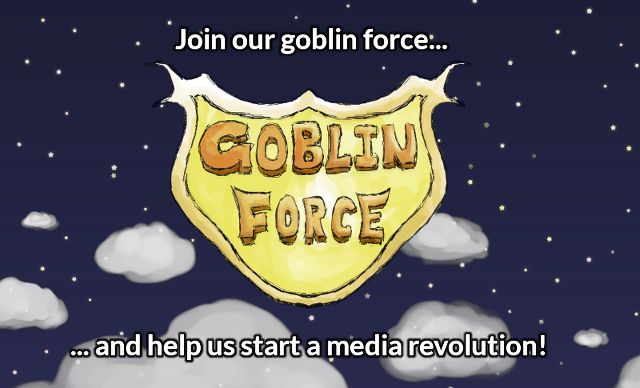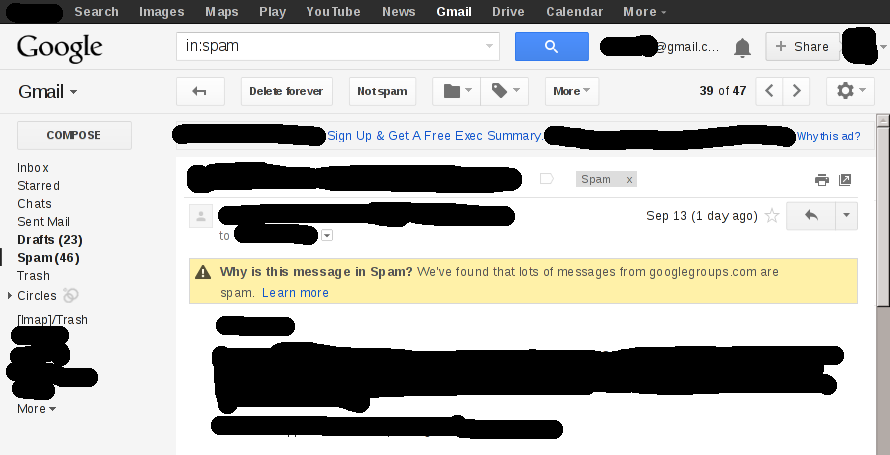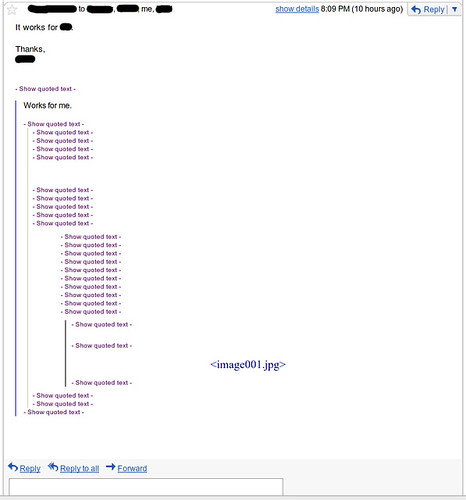 Defensive Patent License version 1.0 turned 0 yesterday. The Internet Archive held a small celebration. The FAQ says the license may be used now:
Defensive Patent License version 1.0 turned 0 yesterday. The Internet Archive held a small celebration. The FAQ says the license may be used now:
Sign up and start using the DPL by emailing defensivepatent@gmail.com.
There will be a launch conference 2014-02-2811-07 in Berkeley: gratis registration. By that time I gather there should be a list of launch DPL users, a website for registering and tracking DPL users, and a non-profit organization to steward the license, for which the Internet Archive will serve as a 501(c)3 fiscal sponsor.
Loosely organized thoughts follow. But in short:
- DPL users grant a royalty free license (except for the purpose of cloning products) for their entire patent portfolio, to all other DPL users. This grant is irrevocable, unless the licensee (another DPL user) withdraws from the DPL or initiates patent litigation against any DPL user — but note that the withdrawing or aggressing entity’s grant of patents to date to all other DPL users remains in force forever.
- Participation is on an entity basis, i.e., a DPL user is an organization or individual. All patents held or gained while a DPL user are included. But the irrevocable license to other DPL users then travels with individual patents, even when transferred to a non-DPL user entity.
- An entity doesn’t need any patents to become a DPL user.
- DPL doesn’t replace or conflict with patent peace provisions in modern free/open source licenses (e.g., Apache2, GPLv3, MPL2); it’s a different, complementary approach.
- It may take years for the pool of DPL users’ patents to be significant enough to gain strong network effects and become a no-brainer for businesses in some industries to join. It may never. But it seems possible, and well worth trying.
- Immediately, DPL seems like something for organizations that want to make a strong commitment, but a narrow one (only to others making the commitment), to patent non-aggression, ought to get on board with. Entities that want to make a broader commitment, including those that have already made complementary commitments through free/open source licenses or non-aggression pledges for certain uses (e.g., implementing a standard), should also get on board.
History
Last year I’d read Protecting Open Innovation: The Defensive Patent License as a New Approach to Patent Threats, Transaction Costs, and Tactical Disarmament (by Jennifer Urban and Jason Schultz, also main authors of the DPL 1.0) with interest and skepticism, and sent some small comments to the authors. The DPL 1.0, available for use now, incorporates some changes suggested in A Response to a Proposal for a Defensive Patent License (DPL) (and probably elsewhere; quite a few people worked on the license). Both papers are pretty good reads for understanding the idea and some of the choices made in DPL 1.0.
Two new things I learned yesterday are that the DPL was Internet Archive founder Brewster Kahle’s idea, and work on the license started in 2009. Kahle had been disturbed that patents with his name on them that he had been told were obtained for defensive purposes while an engineer at Thinking Machines, were later used offensively by an entity that had acquired the patents. This made him wonder if there could be a way for an entity to commit to using patents only defensively. Kahle acknowledged that others have had similar ideas, but the DPL is now born, and it just may be the idea that works.
(No specific previous ideas were mentioned, but a recent one that comes to mind is Paul Graham’s 2011 suggestion of a pledge to not initiate patent litigation against organizations with fewer that 25 employees. Intentionally imprecise, not legally binding, and offering no benefit other than appearing on a web page, probably not surprising it didn’t take off. Another is Twitter’s Innovator’s Patent Agreement (2012), in which a company promises an employee to seek their permission for any non-defensive uses of patents in the employee’s name; unclear uptake. Additional concepts are covered at End Soft Patents.)
DPL and public copyright licenses
Kahle, Urban, and Schultz acknowledged inspiration from the private ordering/carving out of free spaces (for what Urban and Schulz call “open innovation communities” to practice) through public licenses such as the GPL and various Creative Commons licenses. But the DPL is rather different in a few big ways (and details which fall out of these):
- Subject of grant: patent vs. copyright
- Scope of grant: all subject rights controlled by an entity vs individual things (patents or works subject to copyright)
- Offered to: club participants vs. general public
I guess there will be a tendency to assume the second and third follow strictly from the first. I’m not so sure — I can imagine free/open source software and/or free culture/open content/data worlds which took the entity and club paths (still occasionally suggested) — and I think the assumption would under-appreciate the creativity of the DPL.
DPL and free/open source software
The DPL is not replacement for patent clauses in free/open source licenses, which are conditions of public copyright licenses with different subject, scope, and audience (see previous). Additionally, the DPL’s non-grant for cloning products, which I do not understand the scope of, probably further reduces any overlap between modern FLOSS license patent provisions and the DPL that may exist. But, I see no conflict, and some complementarity.
A curiosity would be DPL users releasing software under free software licenses without patent provisions, or even with explicit patent non-grants, like CC0. A complementary curiosity would be free/source projects which only accept contributions from DPL users. Yet another would be a new software license only granting copyright permissions to DPL users (this would almost certainly not be considered free/open source), or releasing DPL users from some license conditions (this could be done as an exception to an existing license).
The DPL isn’t going to directly solve any patent problems faced by free/open source software (e.g., encumbered ‘standards’) any time soon. But, to the extent the DPL decreases the private value (expected rents) of patents and encourages more entities to not see patents as useful for collecting rents, this ought push the problems faced away, just a bit. Even if software patents were to evaporate tomorrow (as they should!), users of free/open source software would encounter patents impacted all sorts of devices running said software; patents would still be a problem for software freedom.
I hope that many free/open source software entities become DPL users, for the possible slowly accruing benefits above, but also to make common cause with others fighting for (or reforming slightly towards) intellectual freedom. Participation in broader discourse by free/open source software entities is a must, for the health of free software, and the health of free societies.
End Soft Patents’ entry on the DPL will probably be a good place to check years hence on how the DPL is viewed from the perspective of free/open source software.
DPL “enforcement”
In one sense, the DPL requires no enforcement — it is a grant of permission, which one either takes or not by also becoming a DPL user. But, although it contains provisions to limit obvious gaming, if it becomes significant, doubtless some entities will try to push its boundaries, perhaps by obfuscating patent ownership, or interpreting “cloning” expansively. Or, the ability to leave with 180 days notice could prove to be a gaping hole, with entities taking advantage of the pool until they are ready to file a bunch of patents. Or, the lack of immediate termination of licenses from all DPL users and the costliness of litigation may mean the DPL pool does little to restrain DPL users from leaving, or worse, initiating litigation (or threatening to do so, or some other extortion) against other DPL users.
Perhaps the DPL Foundation with a public database of DPL users will play a strong coordinating function, facilitating uncovering obfuscated ownership, disseminating notice of bad behavior, and revocation of licenses to litigators and leavers.
DPL copyleft?
In any discussion of X remotely similar to free/open source software, the question of “what is copyleft for X?” comes up — and one of the birthday presenters mentioned that the name DPL is a hat tip to the GPL — is the DPL “copyleft for patents”?
It does have reciprocality — only DPL users get DPL grants from other DPL users. I will be surprised if at some point someone doesn’t pejoratively say the DPL is “viral” — because the license to DPL users stays with patents even if they are transferred to a non-DPL user entity. A hereditary effect more directly analogous to the GPL might involve a grant conditioned on an licensee’s other patents which read on the licensed patent being similarly licensed, but this seems ineffective at first blush (and has been thought of and discarded innumerable times).
The DPL doesn’t have a regulatory side. Forced revelation, directly analogous to the GPL’s primary regulatory side, would be the obvious thing to investigate for a DPL flavor, but the most naive requirement (entity must reveal all patentable inventions in order to remain a DPL user in good standing) would be nearly impossible to comply with, or enforce. It may be more feasible to require revelation of designs and documentation for products or services (presumably source code, for software) that read on any patents in the DPL pool. This would constitute a huge compliance and enforcement challenge, and probably very difficult to bootstrap a significant pool, but would be an extremely interesting regulatory experiment if it gained any traction.
DPL “Troll-proof”?
The slogan must be taken with a mountain of salt. Still, the DPL, if widely adopted, would mitigate the troll problem. Because grants to DPL users are irrevocable, and follow a patent upon changes of ownership, any patent with a grant to DPL users will be less valuable for a troll to acquire, because there are fewer entities for the troll to sue. To the extent DPL adoption reduces patenting in an industry, or overall, there will be less ammunition available for trolls to buy and use to hold anyone up. In the extreme of success, all practicing entities become DPL users. Over a couple decades, the swamp is drained.
Patents are still bad
The only worrisome thing I heard yesterday (and I may have missed some nuance) was the idea that it is unfortunate that many engineers, and participants in open innovation communities in particular, see patents as unethical, and that as free/open source software people learned to use public copyright licenses (software was not subject to copyright until 30-40 years ago), they and others should learn to use appropriate patent tools, i.e., the DPL.
First, the engagement of what has become free/open source software, open access, open data, etc., with copyright tools, has not gone swimmingly. Yes, much success is apparent, but compared to what? The costs beg to be analyzed: isolation, conservatism, internal fighting, gaming of tools used, disengagement from policy and boundary-pushing, reduction (and stunting) of ethics to license choice. My ideal, as hinted above, would be for engagement with the DPL to help open innovation communities escape this trap, rather than adding to its weight.
Second, in part because extreme “drain the swamp” level of success is almost certainly not going to be achieved, abolition (of software patents) is the only solution. And beyond software, the whole system should be axed. Of course this means not merely defending innovators, including open innovation communities, from some expense and litigation, but moving freedom and equality to the top of our innovation policy ordering.
DPL open infrastructure?
I hope, in part to make the DPL attractive to existing open innovation communities, I really hope the DPL Foundation will make everything it does free and open with traditional public copyright and publishing tools;
- Open content: the website and all documentation ought be licensed under CC0 (though CC-BY or CC-BY-SA would be acceptable).
- Open source/open service: source code of the eventual website, including applications for tracking DPL users, should be developed in a public repository, and licensed under either Apache2 or AGPLv3 (latter if the Foundation wishes to force those using the software elsewhere to reveal their modifications).
- Open data: all data concerning DPL users, licensed patents, etc., should be machine-readable, downloadable in bulk, and released under CC0.
DPL readability
I found the DPL surprisingly brief and readable. My naive guess, given a description of how it works, would have been something far longer and more inscrutable. But the DPL actually compares to public licenses very favorably on automated readability metrics. Table below shows these for DPL 1.0 and some well known public copyright licenses (lower numbers indicate better readability, except in the case of Flesch; Chars/(Flesch>=1) is my gross metric for how painful it is to read a document; see license automated readability metrics for an explanation):
| SHA1 |
License |
Characters |
Kincaid |
ARI |
Coleman-Liau |
Fog |
Lix |
SMOG |
Flesch |
Chars/(Flesch>=1) |
| 8ffe2c5c25b85e52f42fcde68c2cf6a88b7abd69 |
Apache-2.0 |
8310 |
16.8 |
19.8 |
15.1 |
20.7 |
64.6 |
16.6 |
33.6 |
247 |
| 20dc61b94cfe1f4ba5814b340095b4c3fa23e801 |
CC-BY-3.0 |
14956 |
16.1 |
19.4 |
14.1 |
20.4 |
66.1 |
16.2 |
40.0 |
373 |
| bbf850220781d9423be9e478fbc07098bfd2b5ad |
DPL-1.0 |
8256 |
15.1 |
18.9 |
15.7 |
18.4 |
65.9 |
15.0 |
40.6 |
203 |
| 0473f7b5cf37740d7170f29232a0bd088d0b16f0 |
GPL-2.0 |
13664 |
13.3 |
16.2 |
12.5 |
16.2 |
57.0 |
12.7 |
52.9 |
258 |
| d4ec7d0b46077b89870c66cb829457041cd03e8d |
GPL-3.0 |
27588 |
13.7 |
16.0 |
13.3 |
16.8 |
57.5 |
13.8 |
47.2 |
584 |
| 78fe0ed5d283fd1df26be9b4afe8a82124624180 |
MPL-2.0 |
11766 |
14.7 |
16.9 |
14.5 |
17.9 |
60.5 |
14.9 |
40.1 |
293 |
Automated readability metrics are probably at best an indicator for license drafters, but offer no guidance on actually improving readability. Last month Luis Villa (incidentally, on the DPL’s advisory board) reviewed a manual of style for contract drafting by editing Twitter’s Innovator’s Patent Agreement per the manual’s advice. I enjoyed Villa’s post, but have not attempted to discern (and discernment may be beyond my capability) how closely DPL 1.0 follows the manual’s advice. By the way, Villa’s edit of the IPA per the manual did improve its automated readability metrics:
| SHA1 |
License |
Characters |
Kincaid |
ARI |
Coleman-Liau |
Fog |
Lix |
SMOG |
Flesch |
Chars/(Flesch>=1) |
| 8774cfcefbc3b008188efc141256b0a8dbe89296 |
IPA |
4778 |
19.6 |
24.0 |
15.5 |
22.7 |
75.8 |
17.0 |
27.1 |
176 |
| b7a39883743c7b1738aca355c217d1d14c511de6 |
IPA-MSCD |
4665 |
17.4 |
21.2 |
15.6 |
20.4 |
70.2 |
16.0 |
32.8 |
142 |
Net
Go back to the top, read the DPL, get your and other entities in the queue to be DPL users at its launch! Or, explain to me why this is a bad idea.








